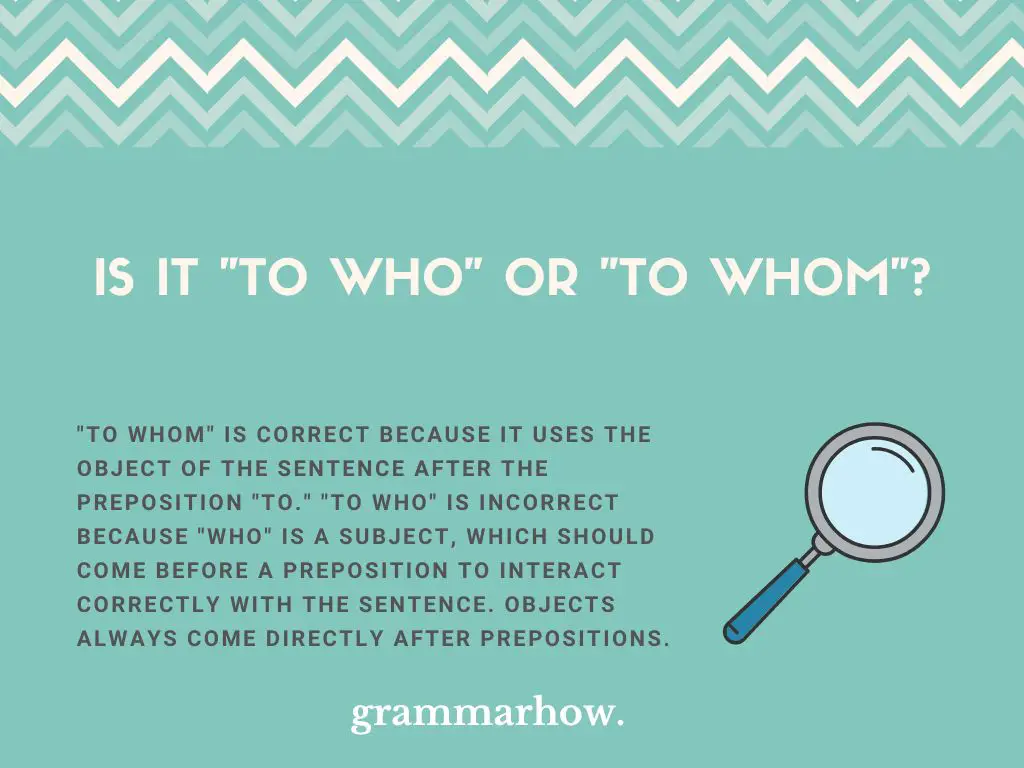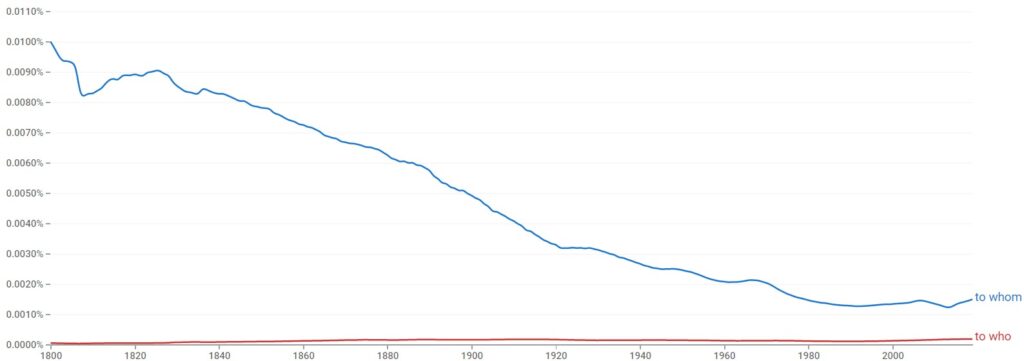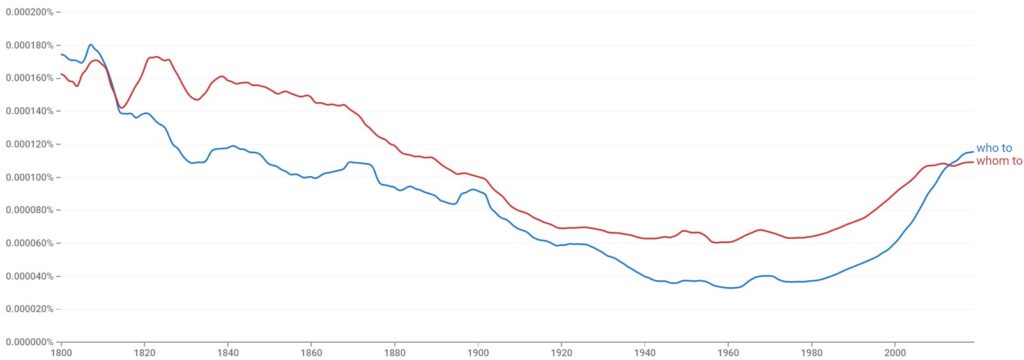We need to understand a lot about “who” and “whom” before using them correctly in sentences. They are very similar words, but there is just enough of a difference that’s important to highlight. This article will help you understand all there is to know.
Is It “To Who” or “To Whom”?
“To whom” is correct because it uses the object of the sentence after the preposition “to.” “To who” is incorrect because “who” is a subject, which should come before a preposition to interact correctly with the sentence. Objects always come directly after prepositions.

“Whom” can be treated in the same regard as object pronouns like “Him” or “me.” We could say “to him” or “to me” and understand what we mean, so it makes sense that “whom” should be able to replace those two words.
“Who” is a subject pronoun, which is similar to “I” or “he.” “To I” and “to he” are not grammatically correct. You should not use them in any situation because they do not convey the correct meaning that you’re looking for.
The two phrases are not interchangeable because “to who” does not work. Informally, you might see it used, but only when people aren’t aware of the rules that work alongside “whom.” In formal and informal contexts, “whom” is your best choice.
According to Google Ngram Viewer, “to whom” is the only grammatically correct variation. The difference in the graph lines shows that it is the only correct variation. “To who” is only ever used when people make mistakes with the object form.

To Who
“To who” is incorrect. It’s a common mistake for people to make when replacing “whom” with “who,” but it’s one that should be avoided.
Native speakers frequently make this mistake, so don’t worry too much if you end up getting it wrong yourself! It’s something that you need to learn with practice, and that will come with time.
- Correct: And to whom do I direct this question? I need to make sure I get the right answer.
- Incorrect: I don’t know to who you answer, but I will find out what I need to know before I leave here.
- Correct: I will see my mother about this, to whom I owe a great deal, and I will make sure she understands that.
- Incorrect: To who do you refer? I’m not familiar with this line of questioning.
To Whom
“Whom” is the object of the sentence, so it’s the only correct form that should come after the preposition “to.” An object pronoun should always come after a preposition, which is why we use them in this form.
- Oh, to whom am I speaking right now? I thought I’d be getting somebody else to talk me through this.
- I will speak with him, to whom I must be honest. If he asks me about it, I will tell him the truth.
- And to whom do you think you’re referring? This isn’t just your standard, everyday tutor, you know?
- This is my father, to whom you have a lot to say thanks.
To Which
“To which” is a variation on “to whom.” It’s much more general, as “which” refers more to objects and things, whereas “whom” only refers to people. “Which” is the object pronoun when things are involved.
- This is the building to which I will be traveling. I hope it will be accommodating.
- To which place are you asking me to take you? I can’t figure out this map!
- I will complete this task, but to which extent, I do not know yet. Let’s see how it plays out.
- I will do this, but I don’t know to which time makes more sense for me.
Is It “Who To” or “Whom To”?
“Who to” and “whom to” are both correct. “Who to” is better when the pronoun and preposition are used in normal circumstances in a sentence. “Whom to” works when a verb comes after “to,” turning it into the infinitive form.
According to Google Ngram Viewer, “who to” is more popular, but there isn’t much of a difference between the two phrase. Both “who to” and “whom to” can be used, depending on the rest of the sentence.

Final Thoughts
“To whom” is the only correct form, as it uses the object of the sentence with “whom.” “To who” is a common misinterpretation of sentence structure rules, but it should not be used in your writing. “Whom” is the only correct choice.
You may also like:
Is It “Whom Should I Contact” or “Who Should I Contact”?
“Who to Contact” or “Whom to Contact”? (Correct Version)
Is It “Who Am I Speaking To” or “Whom Am I Speaking To”?
10 Best Alternatives To “To Whom It May Concern”

Martin holds a Master’s degree in Finance and International Business. He has six years of experience in professional communication with clients, executives, and colleagues. Furthermore, he has teaching experience from Aarhus University. Martin has been featured as an expert in communication and teaching on Forbes and Shopify. Read more about Martin here.
